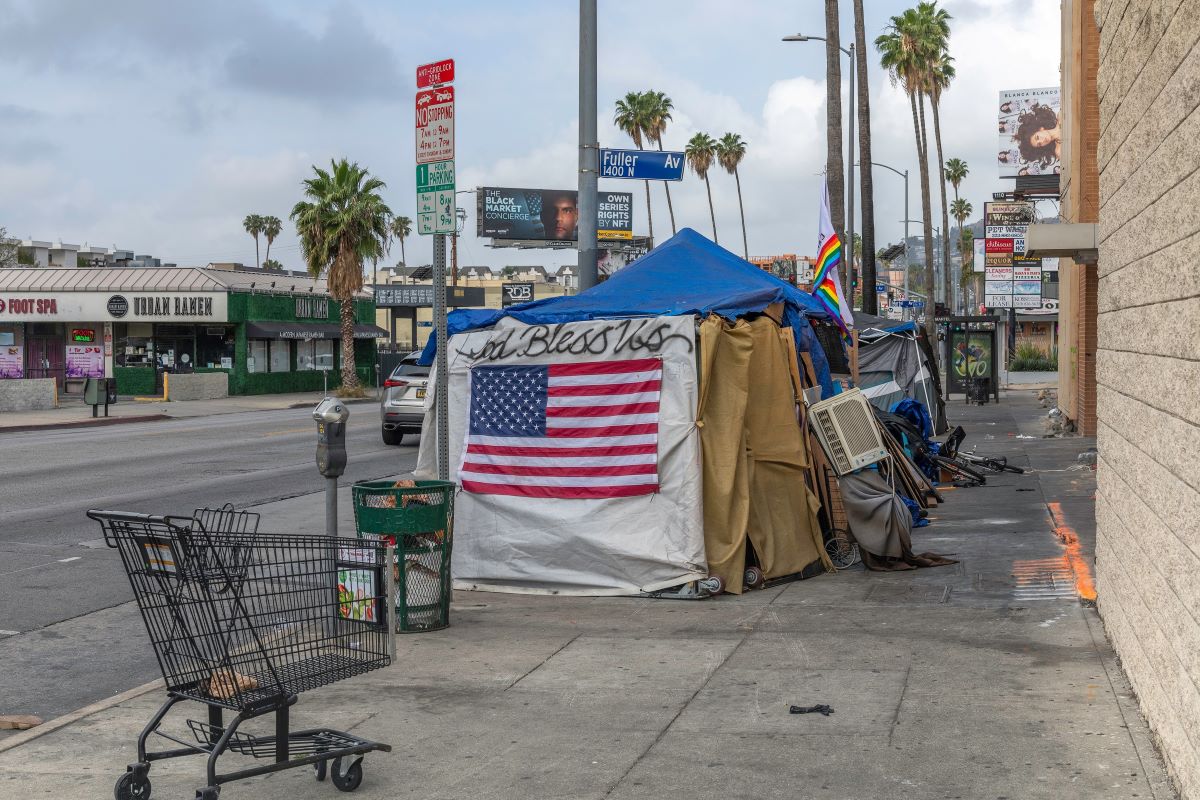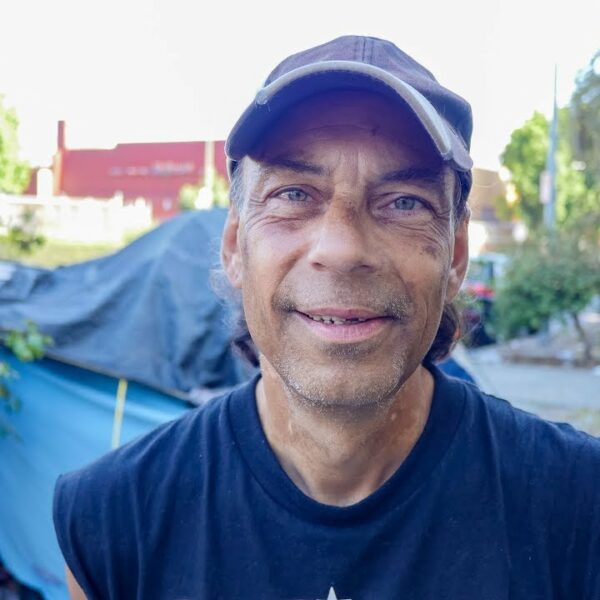Experts proclaim that as homelessness becomes a more visible problem, the public does not become more empathetic toward the plight. In fact, they tend to lean more in favor of punitive policies – criminalization – that force houseless residents back out of sight by running them forcibly into prisons.
As the National Homeless Law Center’s Legal Director Eric Tars explained, “The danger is that the worse the housing situation gets, the more people we see on the streets, the more will be the push for these punitive policies.”
It Is Not Just Homelessness That’s on the Rise, but Also the Anti-Homeless Legislation that Exacerbates It
School records indicate that approximately 2.5 million children will experience homelessness each year. Another 580,000+ visibly homeless adults will be counted as homeless on any given night by volunteers who scour street corners and citywide shelters to gather a snapshot of the situation.
Decades of misinformation have fueled harmful narratives about the problem that is difficult to overcome, even for city leaders who cite a lack of public support for affordable housing programs as one of the main reasons they feel responsible for the issue but helpless to rectify it.
Carefully and quietly, we have created a system that seeks a false sense of security over a solid, actionable plan. Put bluntly, it would seem that people are perfectly okay with homelessness existing. This includes people hailing from groups more vulnerable to homelessness, such as single mothers, low-income earners, and senior citizens.
So long as we can all uphold the façade that homelessness results from flawed decision-making and personal failures, we can rest well, assuming it could never happen to us. But there’s a problem with this way of thinking that could further deepen the already burdensome crisis.
Creating a False Narrative to Sooth the Anxiety Around Homelessness Has Severe Consequences
As homelessness becomes more visible, everyday Americans, who may be just a paycheck or two away from falling into the desolate condition, attempt to convince themselves that all or most homeless people are criminals.
In truth, most of our neighbors without walls are just people who can no longer afford rent.
A lot of statistics are feeding into this scenario all at once. Family homelessness is rising alongside the price of gas and groceries. Senior homelessness is projected to almost triple by 2030 due mainly to nationwide increases in housing costs. Even so, the two search phrases most internet surfers continue to associate with homelessness are addiction and mental health.
We are fooling ourselves and paying a hefty price for it. That price is even more homelessness.
Local Legislators Press for More Camping Bans and Claim it is to Satiate the General Public’s Demands
There’s a political incentive to criminalize homelessness. Feeding the prison system costs taxpayers millions but all the cheap labor lines the pockets of the rich. What was less clear before the findings of a recent poll was that when politicians push for criminalization, they perceive themselves as acting not in favor of the mega-rich but in alignment with the values of poor and middle-class citizens.
Worse still, further research somewhat supports these claims, showing that the more visible the homeless problem becomes, the more “criminal” the homeless person seems in the eyes of the general public.
These stigmas are not just raising eyebrows and turning heads. They are costing people their freedom and their lives.
It’s Time to Change the Way We Look at Homelessness
We used to deal with homelessness by simply turning our faces in the opposite direction. This was never the solution, but in 2023, it is no longer an option. The humanitarian crisis is smack in the middle of our faces now. Sweeping it under the rug will only cause things to fester.
As difficult truth as it might be to swallow, we all must come to terms with the fact that the main thing fueling the homeless crisis is a lack of affordable housing. This means that, in the end, homelessness can happen to you. It can happen to anyone.
If we continue to pass laws that do not address the root cause of the problem, it will happen to even more people in the future. Instead of finding a way out of the situation, homelessness will serve as a way into the prison system. For this reason, we must change the way we look at homelessness.
How do we do it? By looking at the facts:
- Fact – The majority of people enduring homelessness are not criminals.
- Fact – The fastest growing group of people falling into homelessness are senior citizens.
- Fact – 75% of Americans can no longer afford a home.
- Fact – Rental protections are dissipating while benefits programs and wages are stalled.
- Fact – None of these issues get solved by putting homeless people in prison.
Think About This:
Some of the most dangerous things in life are invisible. Cancer, soot, particle pollution, carbon monoxide gas, etc., are all examples of lethal elements we cannot see. Just because we can’t see them doesn’t mean they won’t hurt us. It could easily be argued that if these elements were visible to the naked eye, they would pose less of a threat because we could identify and perhaps even eliminate the problem.
The same is true of homelessness. Moving it will only make you more comfortable temporarily. Eventually, the problem will pose a serious danger because it never really went away. All the while, it was waiting in the shadows, preparing to take you under too.
Lack of Affordable Housing is the Leading Cause of Homelessness – Discuss it with Your Legislators
Several city leaders are under the misguided impression that most voters have staunchly opposed building more affordable housing. They think the people want public camping bans and would rather remove the eyesores seen in tent cities than present long-term solutions.
Contact your legislators today and let them know that you support the prospect of a newly improved affordable housing market where housing is a human right for all.













